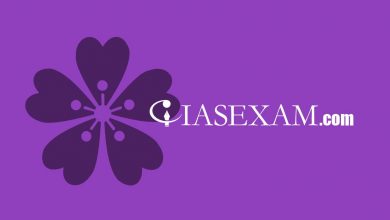Headline at a Glance – 8th June 2020
Govt. modifies public procurement norms
The Central Government has modified public procurement norms to give maximum preference to companies whose goods and services have 50% or more local content, a move aimed at promoting the ‘Make in India’ and making the country self-reliant. The revised Public Procurement (Preference to Make in India), Order 2017 has introduced a concept of Class-I, II and non-local suppliers, based on which they will get preference in government purchases of goods and services. In procurement of all goods, services or works in respect of which the nodal ministry/department has communicated that there is sufficient local capacity and local competition, only Class-I local supplier, shall be eligible to bid irrespective of purchase value, the official statement said. It also said that for purchases of goods/services with an estimated value of less than Rs. 200 crore, global tender enquiry will not be issued except with the approval of the competent authority designated by the Department of Expenditure.
SOURCE: Business Standard
Gross direct tax collection dips 4.92% to Rs 12.33 lakh crore in 2019-20
The gross direct tax collection in 2019-20 fiscal dipped 4.92 per cent to Rs 12.33 lakh crore on account of reduction in corporate tax rate, increased standard deduction and personal I-T exemption limit, the Income Tax department said. The Central Board of Direct Taxes (CBDT), in a statement, said the fall in tax collection is on expected line and temporary in nature. The gross direct tax collection in 2018-19 fiscal stood at Rs 12, 97,674 crore. The government had lowered the net direct tax collection target for 2019-20 fiscal to Rs 11.70 lakh crore in the Revised Estimates, from Rs 13.3 lakh crore projected in Budget presented in July 2019. Although CBDT has not made public the actual net direct tax collection in 2019-20, adjusting the gross collection (Rs 12.33 lakh crore) with refunds (Rs 1.84 lakh crore) show net collection of around Rs 10.49 lakh crore during the fiscal. Net collection is gross collection minus income tax refunds.
SOURCE: Financial Express
ARCI develops magnetocaloric material for cancer treatment
Scientists at the International Advanced Research Centre for Powder Metallurgy and New Materials (ARCI), an autonomous R&D centre of the Department of Science and Technology, have developed a rare-earth-based magnetocaloric material that can be effectively used for cancer treatment. The magnetocaloric materials (certain materials in which application and removal of a magnetic field causes the materials to become warmer or cooler) developed by ARCI are being tested at Sree Chitra Tirunal Institute for Medical Sciences & Technology (SCTIMST). A paper on the research work has been published in the Journal of Alloys and Compounds.
SOURCE: The Hindu
Customs to begin faceless cargo assessment for imports in Chennai and Bengaluru
Chennai and Bengaluru customs will begin faceless assessment of cargo in the first phase of the national rollout of the program. The first phase will begin from June 8 and will be implemented across the country by the year end. To begin with, imports covered by Chapters 84 and 85 of the Customs Tariff Act, 1975 which includes machinery, mechanical appliances, electrical equipment and parts, will be allowed for faceless assessment while going through customs. The Customs Automated System will assign Bills of Entry filed for imports of these materials. “The phased rollout plan envisages that Faceless Assessment shall be the norm pan India by December 31, 2020,” the Board said.
SOURCE: Economic Times
Housing and Urban Affairs Ministry releases advisories for effective waste management
The Union Housing and Urban Affairs (HUA) Ministry on Friday released advisories for effective waste management on the occasion of World Environment Day. HUA Minister Hardeep Singh Puri released documents covering material recovery facilities for municipal solid waste, landfill reclamation and on- and off-site sewage management practices, prepared by the Central Public Health and Environmental Engineering Organisation (CPHEEO), as part of the Swachh Bharat Mission (Urban). Addressing Ministry officials at the event and others watching the webcast, Mr. Puri said: “On this day, we get the chance to reinforce the intrinsic connection between biodiversity conservation and effective waste management. Swachhata and conservation of biodiversity indeed go hand in hand.”
SOURCE: The Hindu, PIB





.png)



